Helping Where You Live – People In Need Helping Others

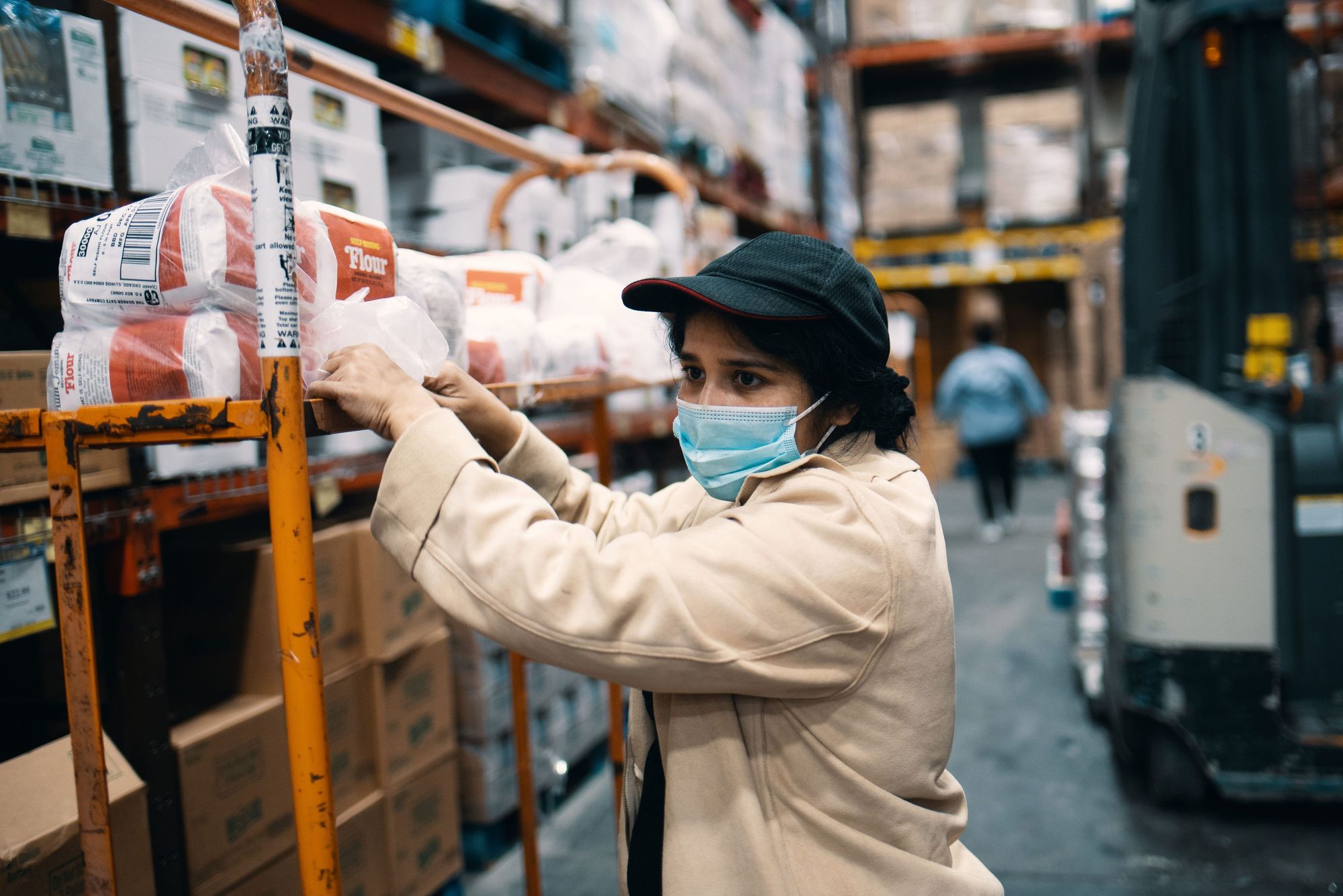
FLATBUSH/KENSINGTON – There’s a vegan halal Indian restaurant that sits on Coney Island Avenue between Newkirk and Webster Avenues called Jalsa Grill & Gravy. It is quite loved by neighbors and the food is delicious (yes, we tried it ourselves). As an essential business, it has remained open since the coronavirus pandemic hit Brooklyn. But, while it is still a restaurant, Jalsa has also turned into a food pantry. People are going in and out of the restaurant, not to buy food, but to volunteer with People In Need (PIN). To help pack boxes with groceries and clothes that were spread all across the small space. And Nowshin Ali wouldn’t have wanted it any other way.
Ali is the owner of Jalsa and the co-founder of PIN, a non-profit organization. We spoke to her back in January of 2019. On March 15, PIN started its emergency supply drive. That was when they started looking for volunteers and began buying groceries in bulk. Things were going to get bad quick, Ali knew, and she wanted to be on top of it. She temporarily closed her afterschool center for kids, and on March 16, they had begun delivering groceries to people in need. Their motto? Someone has to do something and that someone can be us.
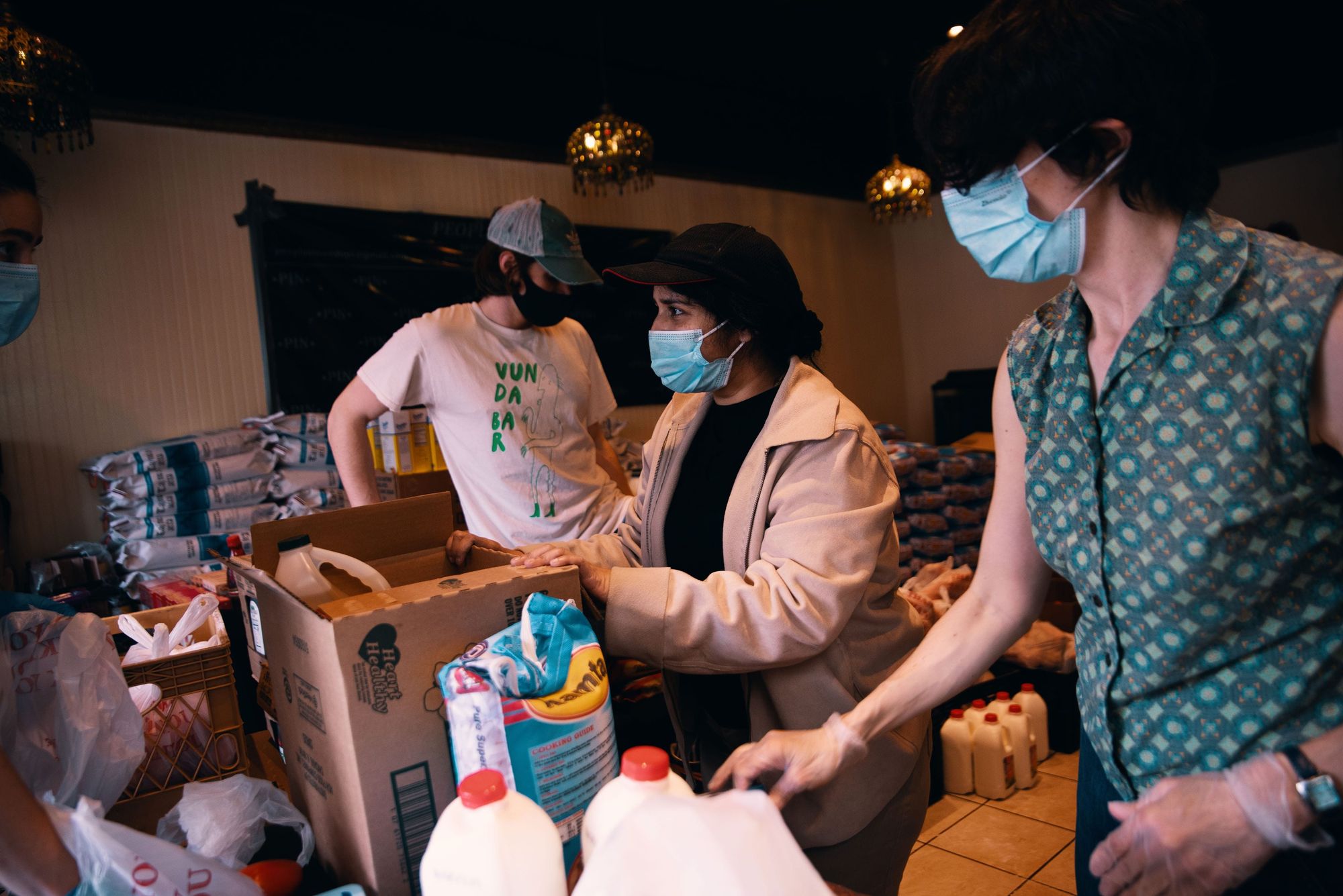
“Sadly, we are located in an underrepresented and underserved community,” Ali told Bklyner. “Due to the urgency of the situation in our neighborhood, we began distributing the groceries to the most vulnerable and needy low-income immigrant families trusting that we would receive donations to help pay for the items we were distributing.”
In order to raise money to sustain their efforts, they put together a fundraiser with a goal of raising $3,000. In two and a half months, they raised over $54,000. With the money, they buy groceries and make boxes, and since most of the people they help are South Asian, boxes include items core to South Asian cooking. A basic family care box includes 10 pounds of basmati rice, one gallon of cooking oil, two pounds of flour, 20 pounds of Indian wheat flour (also known as atta), four pounds of lentils, canned tuna, onions, potatoes, tomatoes, pasta, peanut butter, cereals, toilet paper, milk, eggs, and fruit.
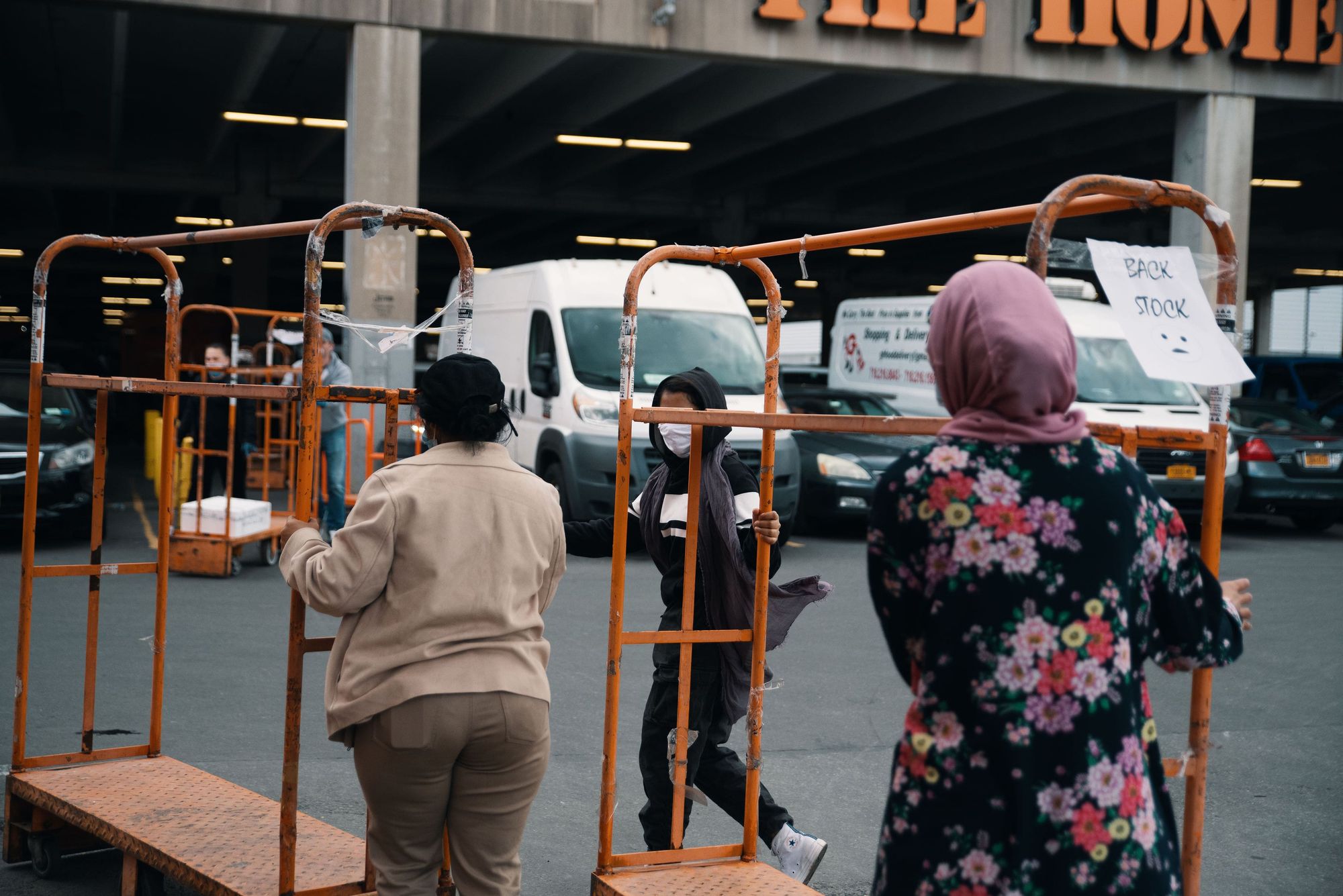
During Ramadan, Muslim families also received chickpea flour (also known as besan), Rooh Afza, boxes of Shan Masala, and four pounds of sugar, along with the original items. At the end of Ramadan, to help families celebrate Eid, the boxes were also supplied with chicken, new clothes, toys, gifts, and vermicelli.
The dine-in area of Jalsa has been converted into a storage and packing area. All of the surfaces are cleaned and sanitized several times a day. All employees wear masks and gloves, wash their hands on a regular basis, and know not to come to work if they feel ill. Outsiders are not allowed beyond the front door. Since Jalsa has remained open for pick-up and deliveries, PIN uses the restaurant’s refrigeration space to keep milk and eggs from spoiling.
“When we began, our main goal was to deliver food boxes to low-income families in and around Flatbush who were being impacted by the virus,” Ali explained. “In the first month, priority was being given to the old, disabled, those with special needs, single moms, and COVID-19 positive families who could not leave their homes due to illness or other circumstances. At that time, we encouraged low-income families to pick their groceries at our location.”
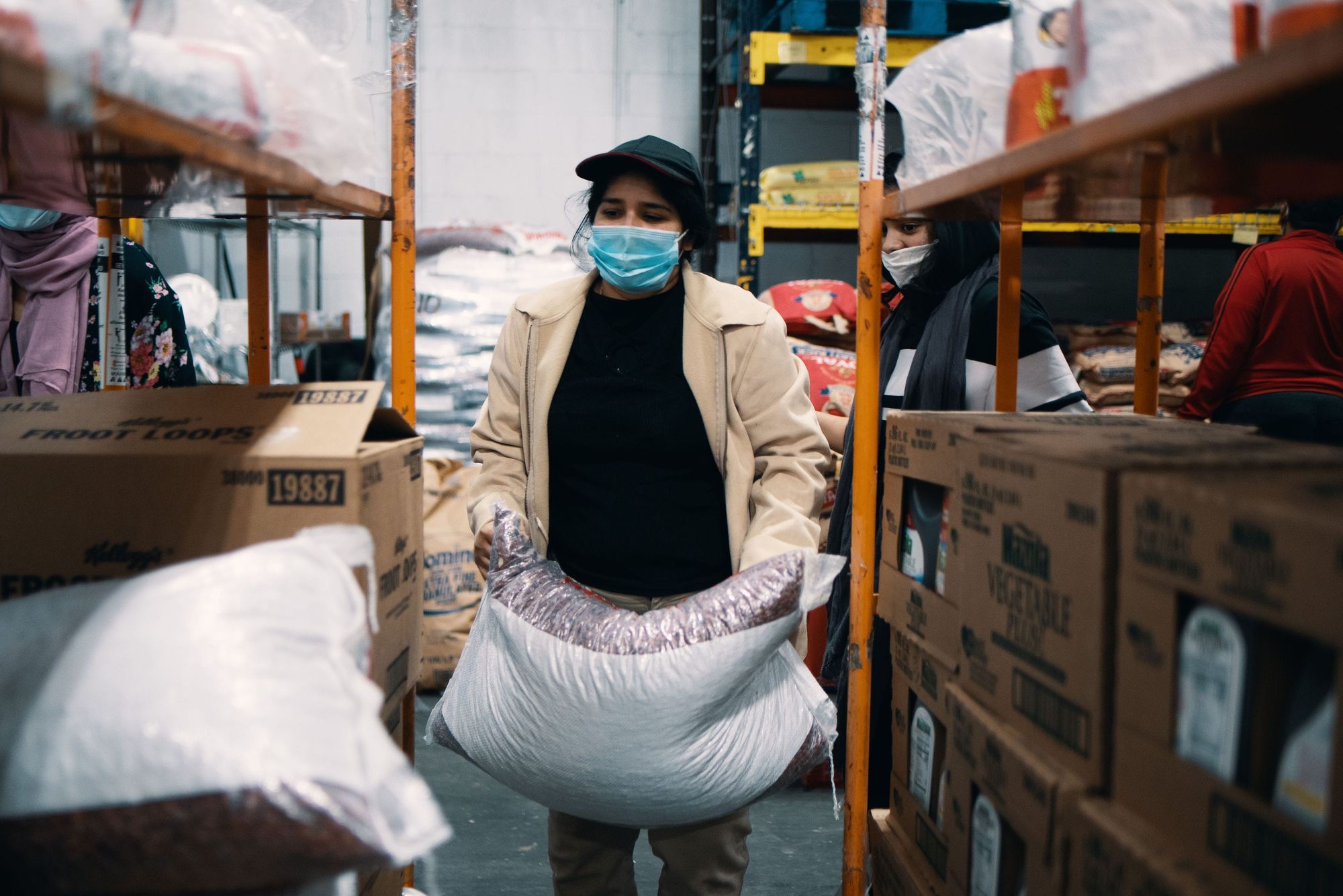
Later on, when local food pantries began to open, the demand for PIN’s services “skyrocketed,” Ali said. So, instead of having people pick up groceries at their location, they shifted to a contactless “delivery-only” model, where volunteers would deliver groceries on foot, by car, or bike – the groceries would be left outside people’s doors.
Currently, PIN has over 100 volunteers. On an average day, there are at least 30 to 40 deliveries being made. Each delivery includes a business card so people could refer their services to others. And to make sure every family gets what they need, Ali encourages people requesting help to fill an online request form. For those who do not have access to the internet, Jalsa remains open for them to come by themselves.
“When the pandemic started, everyone was in a state of panic. We had to stop our programs and close our center. We sensed the rising need of our most vulnerable neighbors around food insecurity during the pandemic,” Ali said. “I was getting calls from moms of my students and first-hand reports about the panic buying, rising prices, shortage of food in the groceries, many families not having enough money to buy and store the groceries, the uncertainty of how long the situation will continue and so on.”
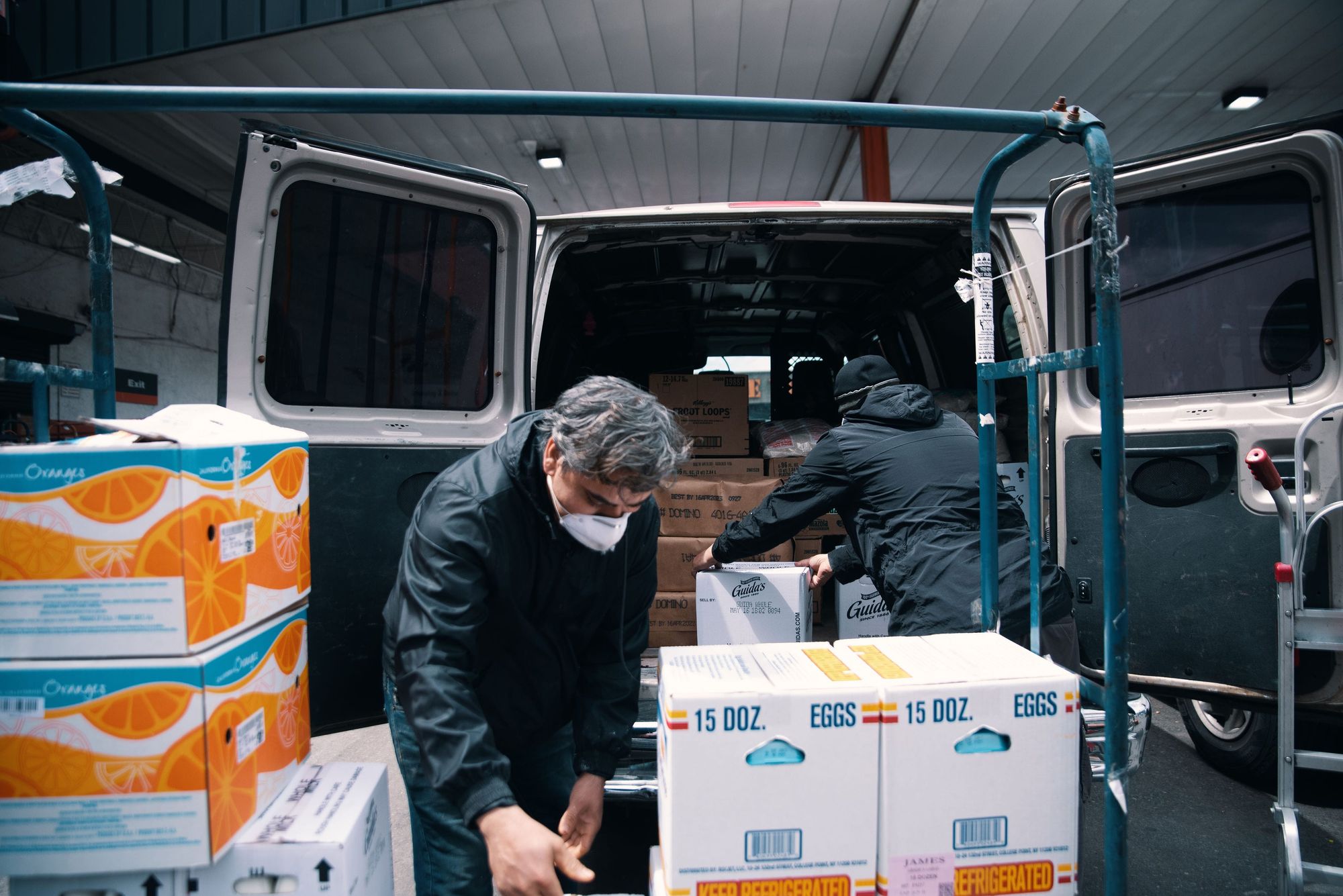
For Ali, giving back is nothing new.
PIN was founded back in 2016 and its first program was a Monday to Friday after-school support group for elementary school children from underserved, predominantly immigrant families. Around the time when she first started the program, it was she who was the most in need.
“When I arrived new in America, I was working full time. I had enrolled my son in a nearby daycare center. When my son was in kindergarten, the center suddenly closed. Then I couldn’t find any suitable after-school program for him in the area,” she said. “Then I decided to start my own homework help center.”
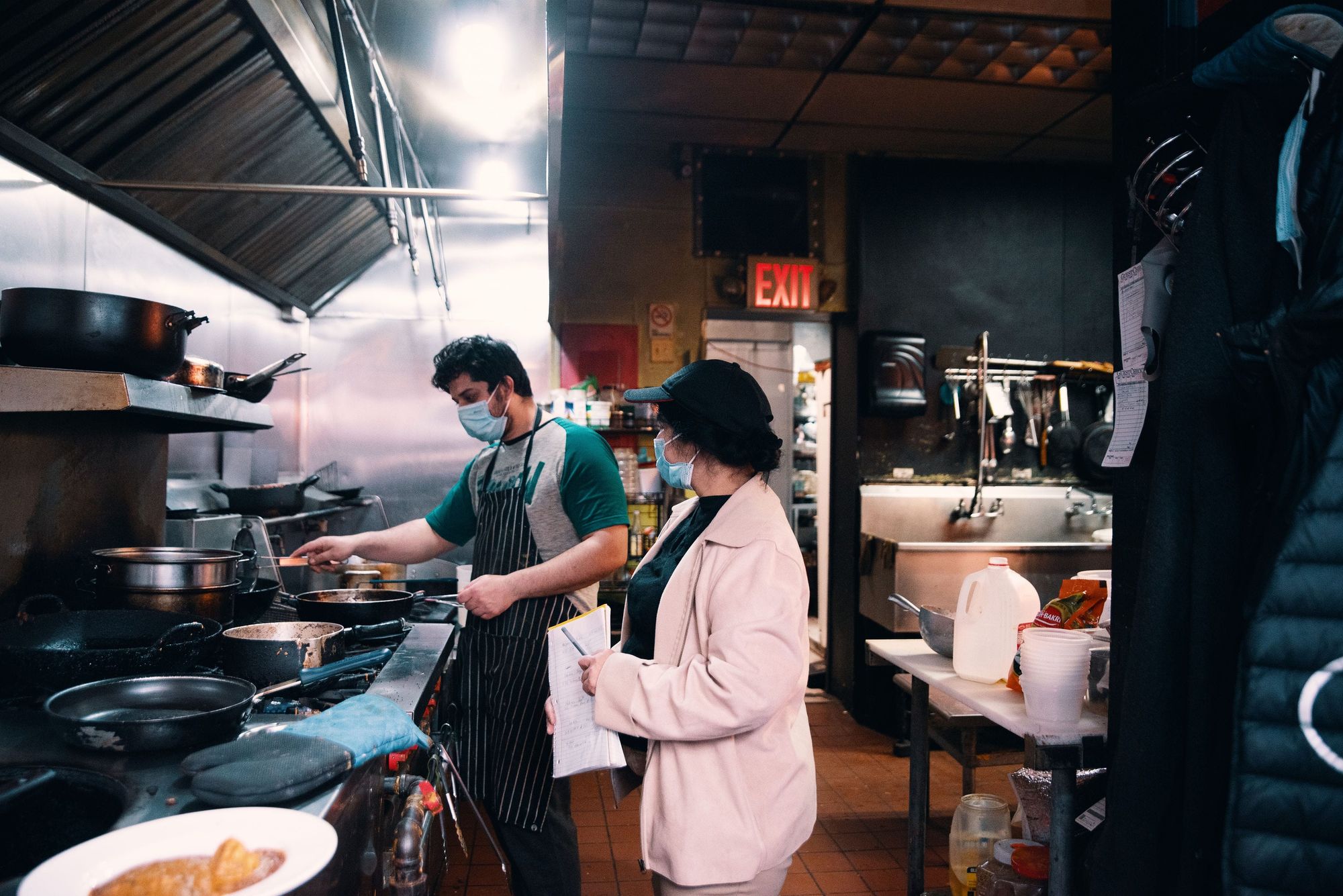
At that point, she met another P.S. 217 mom who shared the same vision. And together, they started the program.
“My initial thought was for the kids who don’t have any guidance because their parents can’t help them with their homework,” she said. “It is sad to see kids drop out in high school. I have a strong feeling that in order to have a strong building, the foundation has to be stronger and that is my goal with kids at my center; to build a strong foundation, so that they can be successful professionals.”
Over the years, they got more volunteers and more students enrolled. More recently, they added a Saturday support group for immigrant women to help them adjust to the American culture. All of their afterschool groups and sessions take place on Newkirk Avenue, between East 8th Street and Coney Island Avenue. For Ali, helping others is a blessing.
“My faith (as do many others), teaches me to give to the needy and help others. To me, it is second nature that when someone needs help, you do what you can to help them,” she said. “When I arrived in the USA, life was very difficult for me. I’m still learning every day to cope up, as new situations arise. So, I am able to empathize and identify with the struggles faced by many of the people. We serve regardless of language and faith.”
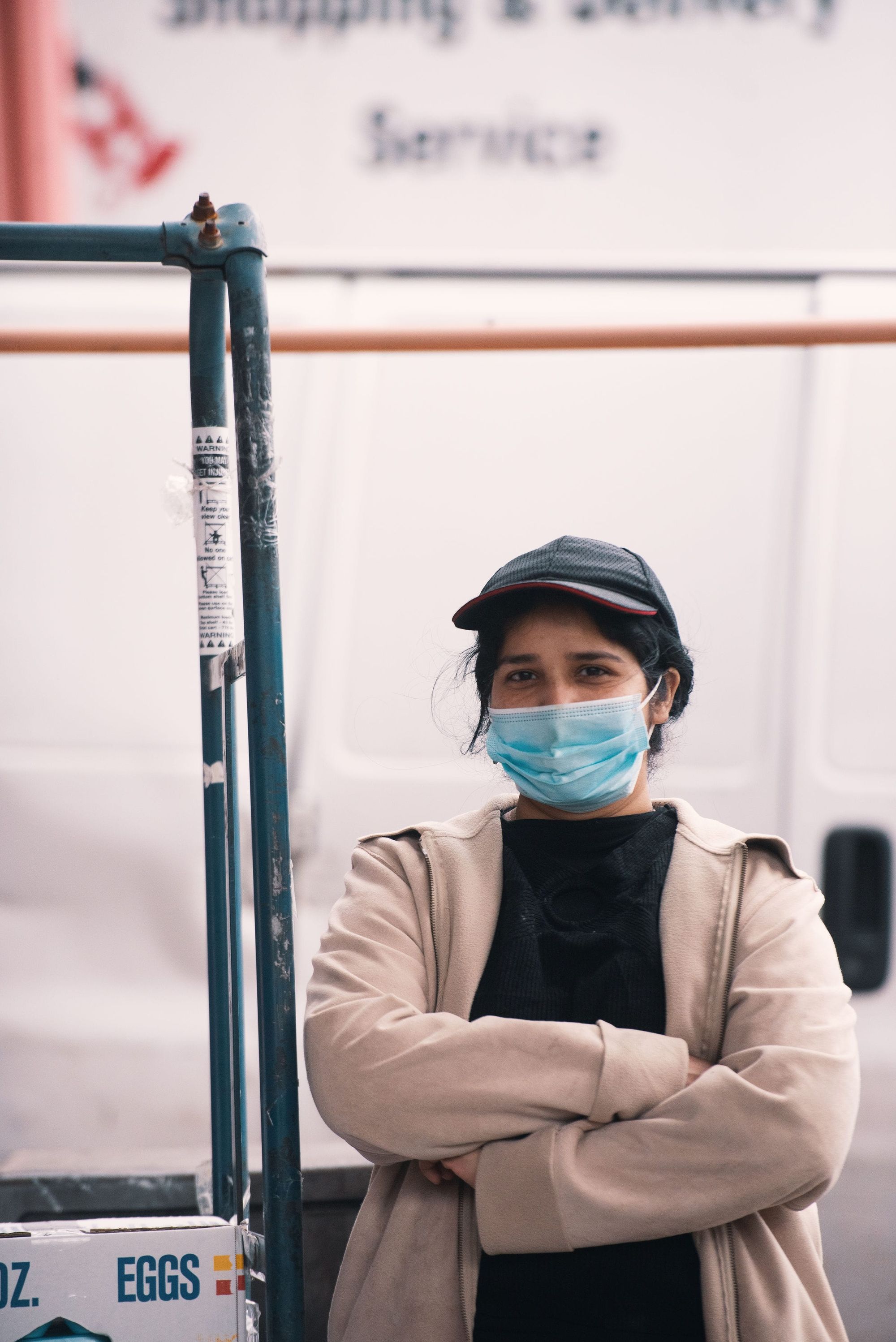
Ali is a woman who is important to many people. But to her, the most important person is her son.
“Between People In Need and Jalsa, I often work 12 hours a day at the restaurant and non-profit, so having him with me is what keeps me going. He has his own space at the restaurant away from the front door and is quite happy and self-sufficient,” she said. “Having him with me means that I am always available for him, be it for academic help or emotional support. It also means that I can eat meals with him. He knows that he is my number one priority.”
She believes the pandemic has changed her as a person– it made her realize the kindness of strangers.
“It has made me realize how many generous people live in our little corner of the world. People have donated money and supplies, volunteered to shop, sort groceries, and make deliveries,” she said. “I think people have suddenly realized how tenuous life can be and to appreciate the little things in life that previously we took for granted.”
“People have started appreciating and recognizing the essential workers, grocery staff, and restaurant workers. It brought a realization to the essential contribution the working class makes in our everyday life,” she said. “New Yorkers are resilient.”
To request groceries, fill out this form here. To volunteer, check out this page. To donate to PIN, visit their GoFundMe page.
All the photos were taken by Rathkopf Photography. We profiled them and their incredible work here. You can view more of their photos capturing Ali and her volunteers in action on their website.




